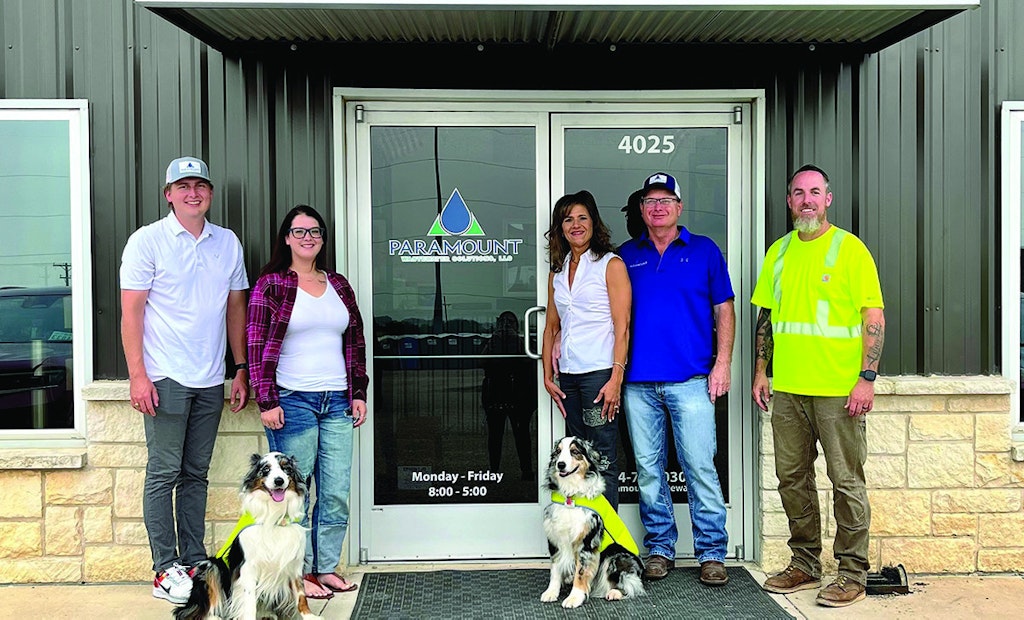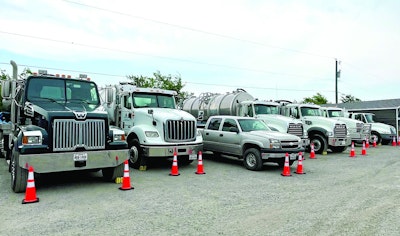
The Paramount Wastewater Solutions leadership team includes, from left, Chase Kern, Hannah Fischer, Krista Kern, Patrick Kern, David Wharton, and office pets Dundee and Zoe. (Photo courtesy of Paramount Wastewater Solutions)
Name and title or job description: Patrick Kern, vice president, and Chase Kern, general manager
Business name and location: Paramount Wastewater Solutions LLC, Temple, Texas
Services we offer: Septic pumping, roll-off services for picking up dry sludge, and a commercial Orenco...






